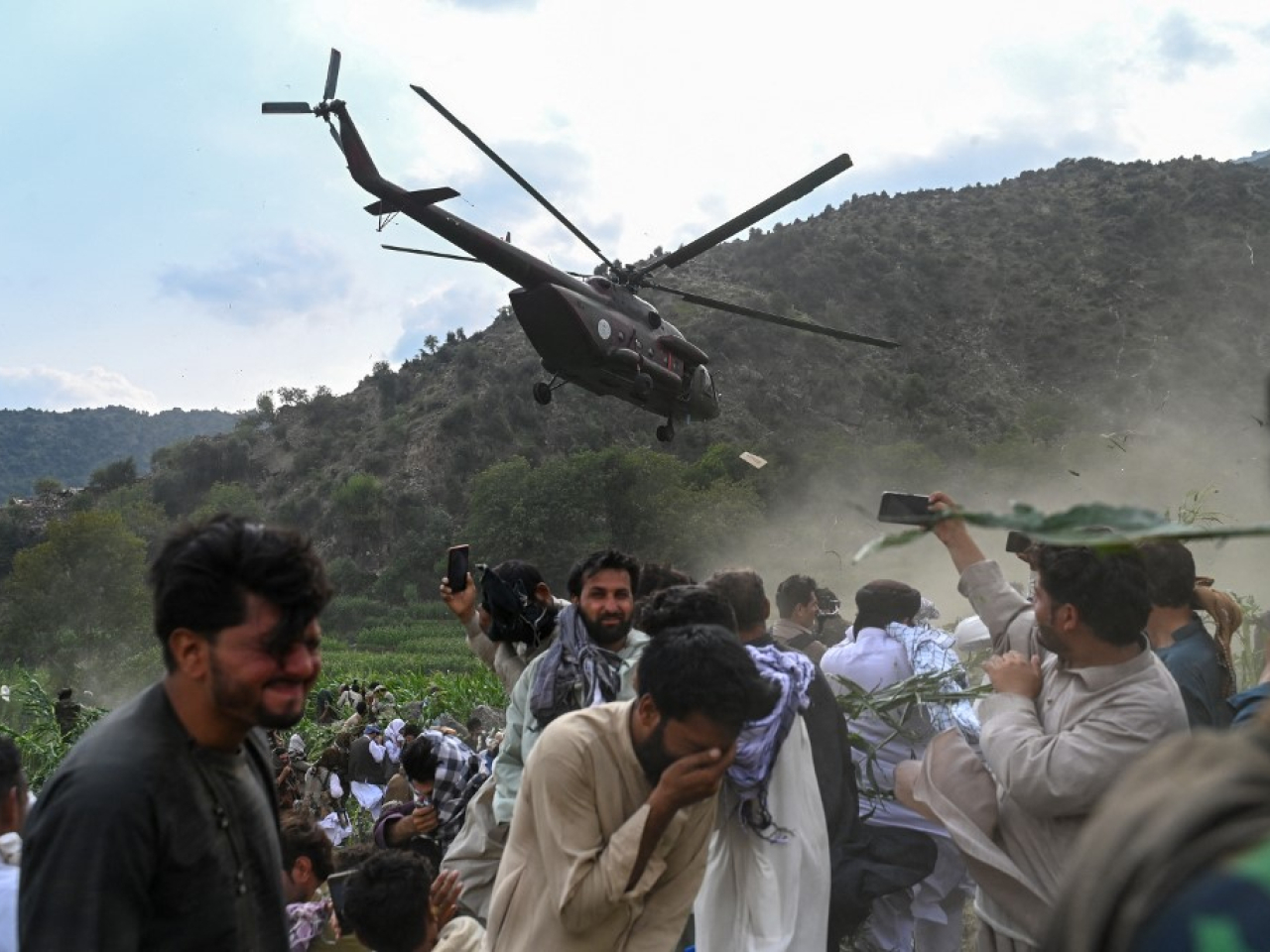At least 1,124 people have died, 3,251 have been injured and more than 8,000 houses have been destroyed, said the Afghan Red Crescent Society, a humanitarian group working in the region, adding that more people are feared trapped under rubble.
The UN coordinator in Afghanistan said the toll was likely to rise. Afghanistan is prone to deadly earthquakes, particularly in the Hindu Kush mountain range, where the Indian and Eurasian tectonic plates meet.
The earthquake, with a magnitude of 6, struck around midnight on Monday at a shallow depth of 10 kilometres, with the eastern provinces of Kunar and Nangarhar being the worst hit.
Rescue operations were carried out in four badly hit villages in Kunar on Monday and efforts will now be focused on reaching more remote mountain areas, said Ehsanullah Ehsan, the provincial head of disaster management.
"We cannot accurately predict how many bodies might still be trapped under the rubble," said Ehsan. "Our effort is to complete these operations as soon as possible and to begin distributing aid to the affected families."
Mountainous terrain and inclement weather have hindered rescuers reaching remote areas along the Pakistani border where the quake flattened hundreds of mud-and-brick homes.
Access for vehicles along narrow mountain roads was the main obstacle, said Ehsan, adding machinery was being brought in to clear roads of debris.
On Tuesday, a line of ambulances was on the damaged mountain road trying to reach Kunar villages, as helicopters flew in, bringing aid supplies and taking the injured to hospitals.
Some of those injured have been transferred to hospitals in Kabul and the adjacent province of Nangarhar, said Ehsan.
Thousands of children were at risk, the United Nations Children's Fund warned on Tuesday.
Unicef said it was sending medicines, warm clothing, tents and tarpaulins for shelter, and hygiene items such as soap, detergent, towels, sanitary pads and water buckets.
Taliban soldiers were deployed in the area, providing help and security. The disaster has further stretched the war-torn nation's Taliban administration, already grappling with a sharp drop in foreign aid and deportations of hundreds of thousands of Afghans by neighbouring countries.
Rescue teams and authorities are trying to dispose of animal carcasses quickly so as to minimise the risk of contamination to water resources, a UN official said on Monday.
"Damaged roads, ongoing aftershocks, and remote locations of many villages severely impede the delivery of aid," the World Health Organization said, adding that over 12,000 people had been affected by the quake. (Reuters)





